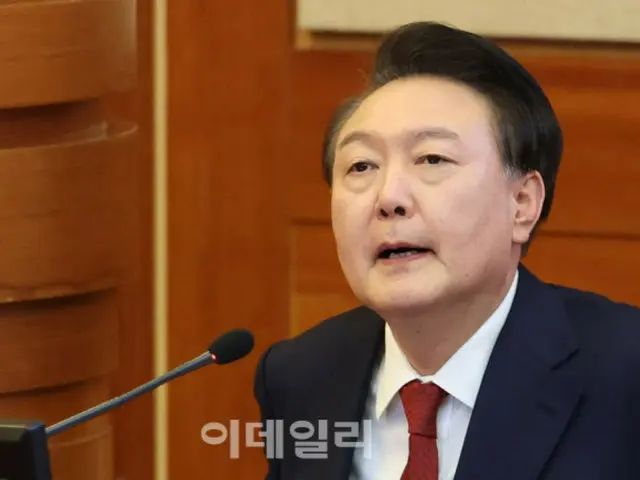On the 26th, Yoon Kap-geun, a lawyer representing President Yoon, issued a statement saying, "The president has already served his detention period and should be released immediately.
"The prosecution can no longer avoid responsibility for the illegal detention of President Yoon," he said. The prosecution expects President Yoon's first detention period to expire around the 27th.
First, at 10 a.m. this morning, the prosecution held a meeting chaired by Prosecutor General Shim Woo-jung (54, 26th class of the Judicial Research and Training Institute) and attended by the deputy chief and chiefs of the Supreme Prosecutors' Office and other high and local prosecutors-general from around the country, and decided to arrest and sue President Yoon.
The government is expected to decide whether to file charges against him. Meanwhile, President Yoon's side believes that the detention period will expire at midnight on the 25th. The detention period will begin on the day of arrest in accordance with Articles 203 and 203-2 of the Criminal Procedure Act.
President Yoon was arrested at 10:33 a.m. on the 15th of this month, so the detention period would normally be 10:33 a.m. on the 24th.
The count of detention time was stopped due to pre-trial interrogation of the suspect (substantive review of the warrant), which led to the current discussion.
Attorney Yoon said, "The High-Ranking Public Officials Crime Investigation Agency filed a lawsuit against the president at 10:33 a.m. on January 15.
"However, Article 214-2, paragraph 13 of the Criminal Procedure Law provides that the court must issue an arrest warrant or a detention warrant review before it can detain the president.
"The period from when the investigation documents and evidence are received until they are returned to the prosecutor's office after a decision is made will not be counted toward the detention period."
The detention warrant substantive review was a system introduced in the 1997 amendment to the Criminal Procedure Law, and when applying for a detention warrant substantive review at that time,
"The 2007 amendment to the Criminal Procedure Act changed the rules so that all suspects are required to undergo practical detention warrant reviews," said attorney Yoon.
Therefore, there is no longer any reason to deduct the time required for the actual review of the arrest warrant from the period of detention. "The time spent on procedures that were carried out regardless of the suspect's wishes was added to the deduction for the period of detention, and the suspect
"If the current Criminal Procedure Act's deduction provision for the period of detention is to be applied, it should be interpreted in a way that suits the interests of the suspect," he said.
Article 96-18 of the Rules of Civil Procedure provides that, "When a warrant of arrest is requested, the judge must enter in the record the time when he received the documents and evidence and the time when they were returned. In this way, the date of deduction is not calculated.
"If Yoon's argument is correct, the total time required for the detention warrant review and the arrest suitability review does not exceed 48 hours.
"Under the current law, which requires a suspect to be questioned at the time of issuing an arrest warrant, the time required for questioning will be deducted from the time of detention," said attorney Yoon.
"Not including the period in the calculation of the period of imprisonment violates Article 9, paragraph 3 of the International Covenant on Civil and Political Rights, which stipulates that necessary interrogations are mandatory," and "Problems with the detention of suspects
"It is a fundamental principle of criminal law that when there is doubt, it should be interpreted in the interest of the suspect," he said.
"The prosecution must not forget its role as a quasi-judicial human rights body to prevent the abuse of investigative powers," he added.
2025/01/26 14:05 KST
Copyrights(C) Edaily wowkorea.jp 91

